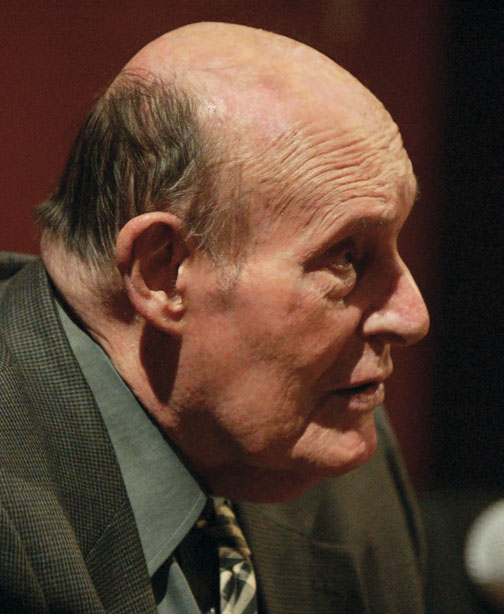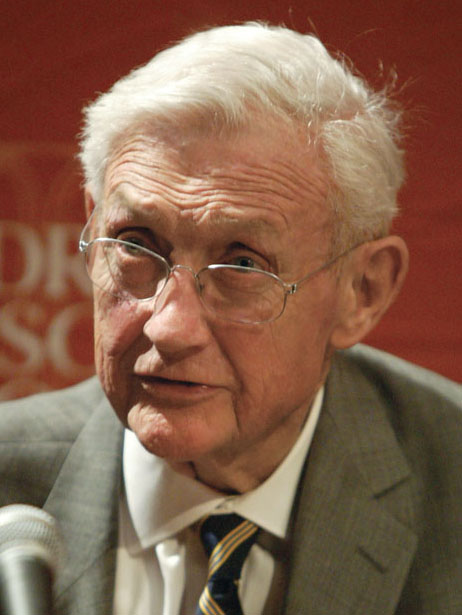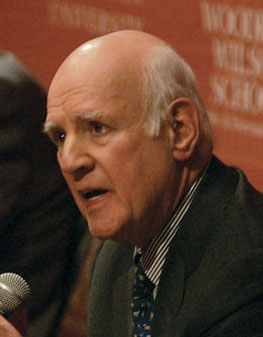Personal tales of civil-rights battles
(Note: This is a corrected version of the story published in the March 23 issue of PAW.)
Three alumni who played crucial roles in America’s civil-rights movement — John Doar ’44, Nicholas Katzenbach ’43, and Harrison Jay Goldin ’57 — reunited in Dodds Auditorium March 2, sharing personal stories about some of the country’s best-known civil-rights struggles.
Katzenbach, who drafted the landmark 1964 Civil Rights Act, described his role heading the effort to enforce the admission of a black student, James Meredith, to the all-white University of Mississippi in 1962. Riots left two people dead, and 22,000 soldiers were required to stop the violence. But the government’s persistence “told white citizens in the South that resistance to equal rights just wasn’t going to work,” he said. And the following year, when Katzenbach faced Gov. George Wallace in their famous confrontation at a door at the University of Alabama, he felt confident that Wallace would stand aside — and he was right.
Goldin — a Justice Department lawyer assigned to be Meredith’s roommate — recalled how officials including President John F. Kennedy tried to convince Meredith not to attend a Saturday football game; when Meredith stayed firm, they had the game moved so that he would be protected. And Doar, a former assistant attorney general in the Civil Rights Division, poignantly recounted the case of a black Louisiana cotton farmer who had testified to Congress about not being permitted to vote, only to return home and find that no one would gin his cotton. Attorney General Robert F. Kennedy took a personal interest, and the cotton got ginned.
For the record: The class year of Nicholas Katzenbach '43 was reported incorrectly in the March 23 issue of PAW.















No responses yet